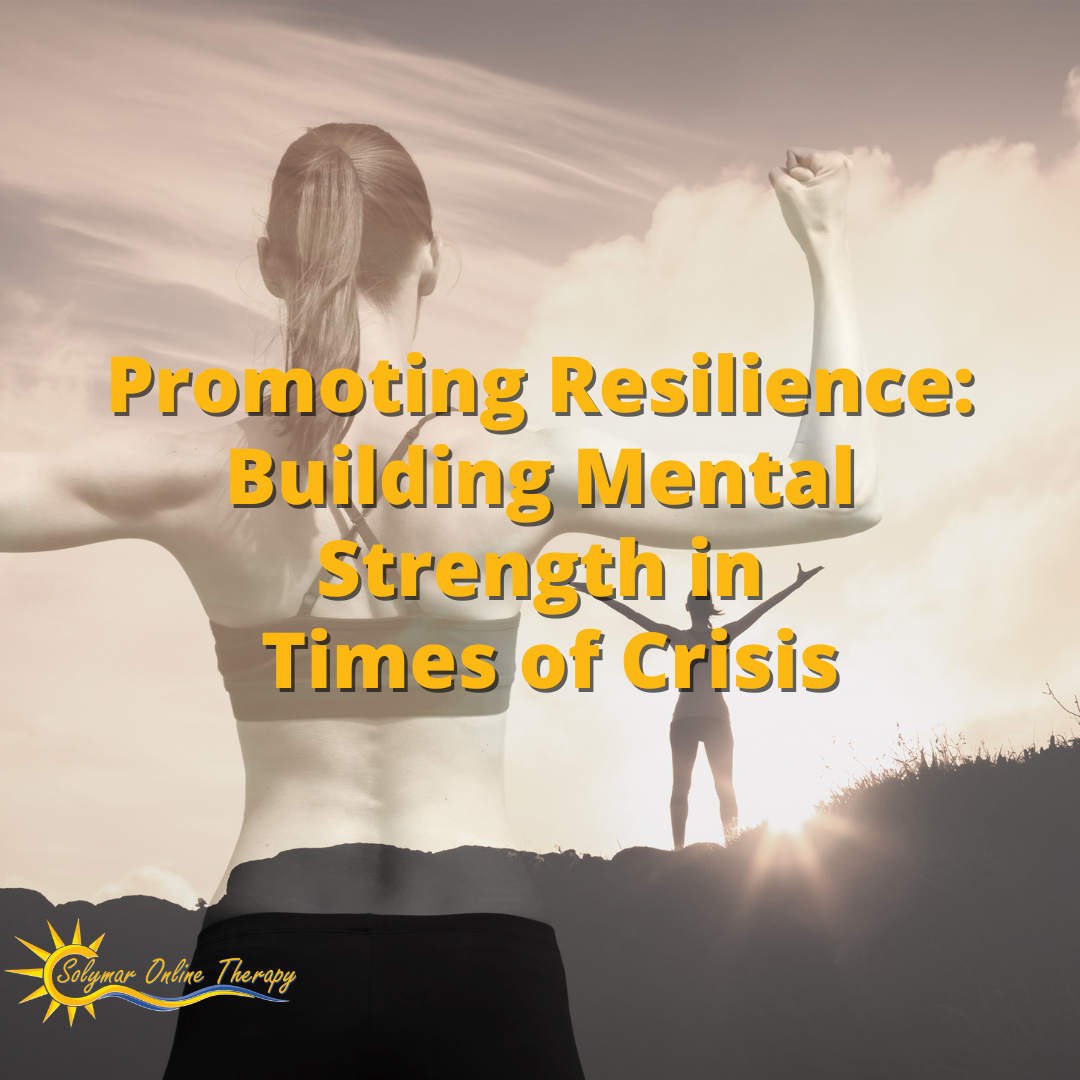 Introduction
Introduction
Life is full of uncertainties, and at times, we encounter adversities that test our mental and emotional fortitude. Building resilience is essential in navigating through challenging circumstances, as it empowers individuals to bounce back, adapt, and thrive despite difficult situations. In the face of crisis, promoting resilience becomes even more critical as a preventive measure against suicide and other mental health challenges. In this article, we will focus on the importance of building resilience and provide practical tips, coping strategies, and resources to help readers develop mental strength during challenging times.
Understanding Resilience as a Preventive Measure
Resilience refers to the ability to cope effectively with stress, bounce back from setbacks, and adapt positively to adversity. It is not an innate trait but rather a skill that can be cultivated and strengthened over time. Resilient individuals possess the capacity to withstand life's challenges without losing their sense of hope and purpose.
Promoting resilience is a preventive measure against suicide and other mental health issues. By developing mental strength and coping mechanisms, individuals are better equipped to navigate through crises and seek support when needed. Resilience acts as a protective factor, reducing the likelihood of succumbing to overwhelming emotions and thoughts.
Practical Tips for Building Resilience
-
Cultivate a Supportive Network: Surround yourself with a network of supportive friends, family, or colleagues. Sharing your experiences and emotions with trusted individuals can provide emotional validation and a sense of belonging.
-
Practice Mindfulness: Engage in mindfulness practices, such as meditation and deep breathing exercises, to stay present and grounded. Mindfulness can help manage stress and reduce anxiety during challenging times.
-
Seek Professional Support: Don't hesitate to seek professional help if you find it challenging to cope with the crisis. Therapists and counselors can provide guidance and support tailored to your specific needs.
-
Focus on Self-Care: Take care of your physical and emotional well-being by getting enough rest, eating nutritious foods, and engaging in activities that bring you joy.
-
Set Realistic Goals: Set achievable goals for yourself and break them down into smaller, manageable tasks. Celebrate your progress, no matter how small.
-
Practice Gratitude: Cultivate a habit of gratitude by acknowledging the positive aspects of your life, even amidst challenges.
Coping Strategies for Resilience
-
Reframe Negative Thoughts: Challenge negative thought patterns and replace them with more balanced and realistic perspectives.
-
Embrace Flexibility: Be open to change and adaptability. Flexibility allows you to adjust your approach to challenges as needed.
-
Learn from Adversity: View adversity as an opportunity for growth and learning. Reflect on past challenges and identify how they have shaped your resilience.
-
Express Emotions: Allow yourself to express your emotions, whether through journaling, art, or talking to someone you trust. Suppressing emotions can hinder resilience.
-
Practice Problem-Solving: Develop problem-solving skills to tackle challenges more effectively. Break problems into smaller parts and work on one aspect at a time.
Resources to Support Resilience
-
Mental Health Helplines: Familiarize yourself with mental health helplines and crisis support services in your area. Having access to these resources can be vital in times of crisis.
-
Online Support Groups: Consider joining online support groups where you can connect with others facing similar challenges and share coping strategies.
-
Self-Help Books and Apps: Explore self-help books and mental health apps that offer practical tools and techniques for building resilience.
-
Community Programs: Look for community programs or workshops focused on mental health and resilience. Engaging in such activities can provide additional support and insights.
Conclusion
Promoting resilience is a proactive approach to safeguarding mental well-being during challenging times. Building mental strength empowers individuals to cope with stress, adapt to adversity, and seek support when needed. By cultivating resilience, individuals can mitigate the risk of succumbing to overwhelming emotions, thus serving as a preventive measure against suicide and other mental health challenges.
Remember that resilience is a skill that can be developed and strengthened over time. Incorporate practical tips, coping strategies, and available resources into your life to foster resilience and thrive in the face of crisis. Reach out to supportive networks, seek professional help when needed, and focus on self-care to build mental strength and embrace life's uncertainties with greater confidence.
Hashtags: #PromotingResilience #BuildingMentalStrength #CopingStrategies #MentalWellbeing #PreventiveMeasures #SuicidePrevention #MentalHealthSupport #CrisisManagement #MentalHealthAwareness #PositiveAdaptation
Suicide Help
Suicide Help Lines
![UK Suicide Help Lines]() UK
UK
Here are some UK-based helpline numbers and resources that individuals can reach out to for immediate support if needed:
-
Samaritans Helpline: 116 123 Website: www.samaritans.org
-
Mind Infoline Helpline: 0300 123 3393 Text: 86463 Website: www.mind.org.uk
-
CALM (Campaign Against Living Miserably) Helpline: 0800 58 58 58 Website: www.thecalmzone.net
-
PAPYRUS (Prevention of Young Suicide) Helpline (for under 35): 0800 068 41 41 Website: www.papyrus-uk.org
-
The Mix (for under 25) Helpline: 0808 808 4994 Website: www.themix.org.uk
-
Rethink Mental Illness Helpline: 0808 801 0707 Website: www.rethink.org
-
YoungMinds (for parents concerned about their child's mental health) Helpline: 0808 802 5544 Website: www.youngminds.org.uk
-
Childline Helpline: 0800 1111 Website: www.childline.org.uk
Remember, if you or someone you know is in immediate danger or requires urgent medical attention, please call 999 or go to the nearest hospital emergency department.
These helplines and resources are staffed by trained professionals who can provide confidential support, guidance, and a listening ear to those experiencing emotional distress, including thoughts of suicide. It's crucial to reach out for help when needed, and these organizations are there to offer support 24/7.
![Canada Suicide Help Lines]() CANADA
CANADA
Here are some Canadian-based helpline numbers and resources that individuals can reach out to for immediate support if needed:
-
Canada Suicide Prevention Service Helpline: 1-833-456-4566 Website: www.crisisservicescanada.ca
-
Crisis Text Line Canada Text: CONNECT to 686868
-
Kids Help Phone (for youth under 20) Helpline: 1-800-668-6868 Website: www.kidshelpphone.ca
-
First Nations and Inuit Hope for Wellness Help Line Helpline: 1-855-242-3310
-
Trans Lifeline Helpline: 1-877-330-6366 Website: www.translifeline.org
-
Canadian Mental Health Association (CMHA) Crisis Line Check your local CMHA branch for the helpline number.
-
Crisis Services Canada Helpline: 1-833-456-4566 Text: 45645
-
Distress Centres of Greater Toronto Helpline: 416-408-4357 Text: 45645
These helplines and resources provide confidential support and assistance to individuals in Canada who may be experiencing emotional distress, suicidal thoughts, or other mental health challenges. Trained professionals are available to offer help 24/7, ensuring that those in need have access to immediate support and someone to talk to during difficult times.
As with any crisis situation, if you or someone you know is in immediate danger or requires urgent medical attention, please call 911 or go to the nearest hospital emergency department.
![US Suicide Help Lines]() USA
USA
Here are some USA-based helpline numbers and resources that individuals can reach out to for immediate support if needed:
-
National Suicide Prevention Lifeline Helpline: 1-800-273-TALK (1-800-273-8255) Website: www.suicidepreventionlifeline.org
-
Crisis Text Line Text: HOME to 741741 Website: www.crisistextline.org
-
Veterans Crisis Line Helpline: 1-800-273-TALK (1-800-273-8255), press 1 Text: 838255 Website: www.veteranscrisisline.net
-
SAMHSA (Substance Abuse and Mental Health Services Administration) National Helpline Helpline: 1-800-662-HELP (1-800-662-4357) Website: www.samhsa.gov/find-help/national-helpline
-
National Alliance on Mental Illness (NAMI) Helpline Helpline: 1-800-950-NAMI (1-800-950-6264) Website: www.nami.org
-
TrevorLifeline (for LGBTQ+ youth) Helpline: 1-866-488-7386 Website: www.thetrevorproject.org
-
RAINN (Rape, Abuse & Incest National Network) National Sexual Assault Hotline Helpline: 1-800-656-HOPE (1-800-656-4673) Website: www.rainn.org
-
National Domestic Violence Hotline Helpline: 1-800-799-SAFE (1-800-799-7233) Website: www.thehotline.org
These helplines and resources offer confidential support and help to individuals in the USA who may be experiencing emotional distress, suicidal thoughts, or dealing with mental health and related issues. Trained professionals are available 24/7 to provide immediate assistance and a listening ear for those in need.
In case of a life-threatening emergency or immediate danger, please call 911 or go to the nearest hospital emergency room for immediate help.

 UK
UK CANADA
CANADA USA
USA




